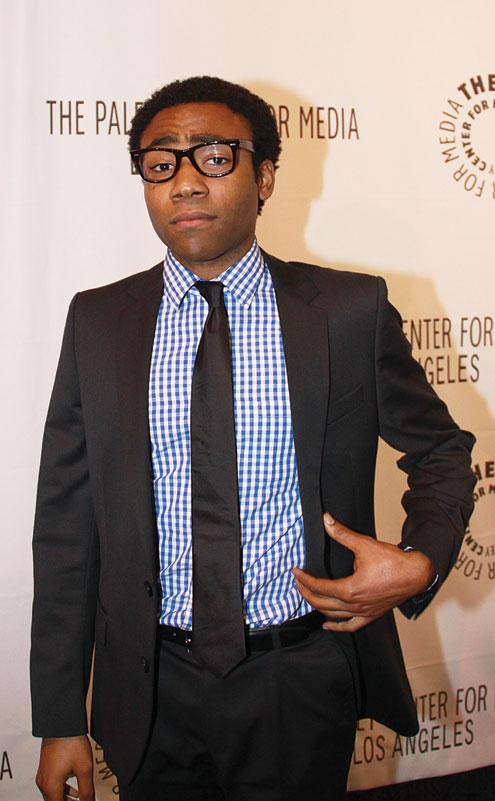 Amidst the revolutions and protests, there are faces that stand out from the crowd as symbols of change or hope.
Amidst the revolutions and protests, there are faces that stand out from the crowd as symbols of change or hope.
Donald Glover served as the face of protestors with a real cause. In the face of disaster, Glover lent his face to serve as the background to bolded text: “Save Community.” His sacrifice was enough to save the show at least a little longer.
It makes sense; a large part of the success of “Community” is the character that Donald brings to the screen. His character, Troy, works alongside the awkward Abed, and the duo becomes dynamic. The show has gathered a strong fan-base, and Glover’s name has grown.
After putting that same name into a “Wu-Tang name generator,” Donald Glover became Childish Gambino. The name stuck, and Childish Gambino became the mask for Donald Glover’s rapping, touring and writing.
Relying heavily on Twitter, Tumblr and social media, Childish Gambino got enough mix tapes out to create as much buzz as his alter ego.
Actor-gone-rapper or rapper-gone-actor scenarios rarely end well. Either bad movie reviews or mass-produced lyrics block off attempting double-threats as they try to turn down a different trail.
The album Camp, released November 2011, was Childish Gambino’s first studio album, but it did not leave a processed taste. Lyrically, Childish Gambino is clever, using social puns and plays on words, while remaining poetic at the same time; however, it is in the content you see his real talent. Childish Gambino is not afraid to air out his closet, revealing embarrassing experiences, his failings and high school stories. He comments on insecurities like his “fat nose” and strange hair, as well as interior struggles to fit in as things around him change.
It’s in his social commentary on the image of black rap and rappers that provides something different. He stakes his post as an outsider both in his rapping and in his personal life. Addressing his critics, he acknowledges their perceptions of his “hipster” style and his lack of cliché rapper extra-curricular.
Childish Gambino is okay with this outsider image; cursing both the industry and the artists that have allowed the image of “black” life to become synonymous with “hood life.” His struggles are different than what other voices have rapped about, but he is not ashamed of this.
The final track, “That Power,” ends in a monologue describing his experience of summer camp love. His story includes descriptive details that produce a vivid scene. The story tells of a summer camp love betrayal that changed his perspective on communication.
“I learned to cut out the middle man and make it all for everybody, always. Everybody can’t turn around and tell everybody, everybody already knows.”
I only wish my words could as eloquently describe his in this last monologue, but it perfectly epitomizes the sentiments behind “Camp.” As his words end and the violin background fades away, you are left with the image of a boy that is very open and raw and an album that represents a new side of rap. The pride in his insecurities create an album worth picking up for a taste of honesty and maybe a lesson in self-image.









